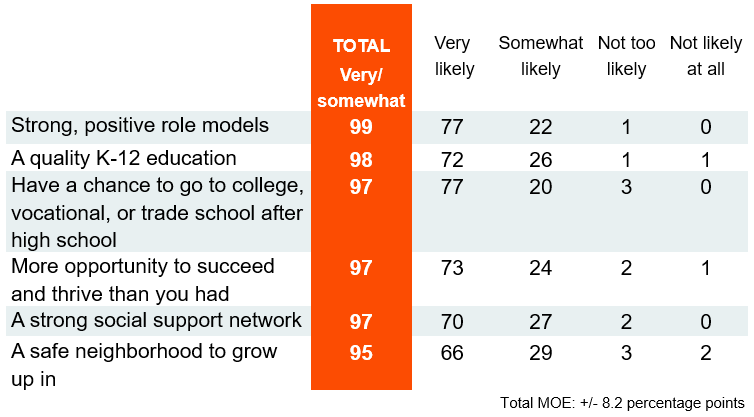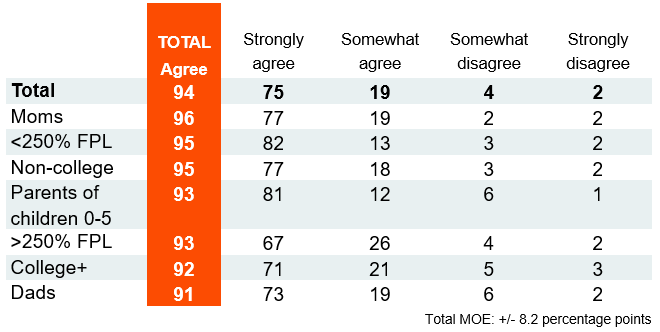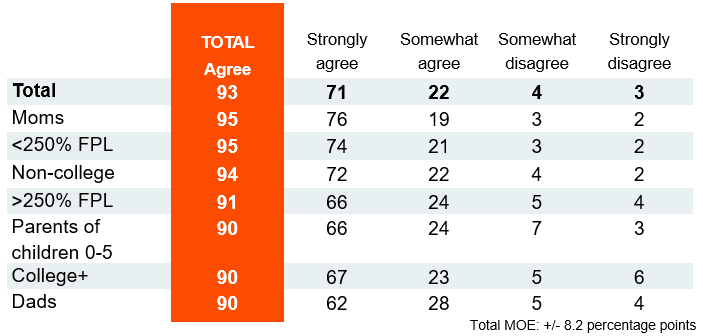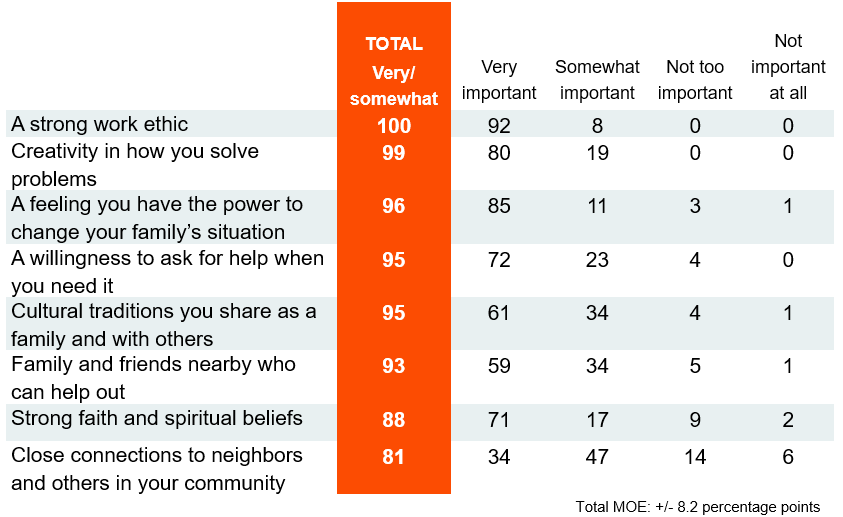Raising the Next Generation: Asian American and Pacific Islander Parents and Caregivers
Asian American and Pacific Islander parents and caregivers report themes of optimism, independence, and self-determination.
Black parents’ and caregivers’ experience raising children is one that is marked by optimism while facing long-standing, systemic barriers. This tension emerges throughout their responses: a fierce determination to ensure their children have the opportunity to thrive while grappling with the reality of racism and how it limits their opportunities and those of their children.
“As a parent, you feel like you want to do better for your kids than what happened with you.” Black focus group participant, Illinois
Black parents are optimistic about their children’s future. They take pride in their parenting and feel strongly that they’re doing their best to give their kids what they need to be successful. Indeed, the overwhelming majority of Black parents surveyed believe they will be successful in providing positive experiences for their kids. They think it is very likely their children will have strong role models, get a quality education, and ultimately have more opportunity to succeed and thrive than they had.

“I don’t want anyone to hold her back, whatever she feels that she wants to do, she needs to do it! I don’t want to be a hindrance to her abilities to go out and do anything that she puts her mind to.” Black focus group participant, Mississippi
Most Black parents agree that America does not offer every child the same opportunity to succeed. Black parents with lower incomes and parents of young children are the most likely to strongly agree that America does not offer every child the same opportunity.

The most poignant finding among Black parents is how they experience racism and discrimination. Black parents report racism in almost every facet of their life and how it has limited their opportunities to succeed and provide for their children. Most Black parents surveyed believe that systemic racism can make it harder for someone like them to thrive.

“Where I come from, it’s like it’s not enough opportunities out there for us.” Black focus group participant, Georgia
There is also little question among these parents that racism and discrimination will impact their children. Three-quarters of Black parents are concerned racism will limit their children’s opportunities, and an overwhelmingly 9 in 10 parents think it is likely their children will experience racism as well as harassment and profiling by law enforcement.
“You know, kids, at ten years old or five years old, they don’t see color. They just see this is my friend. However, I still talk to my kids about things happening to Black men and women in the community. And I let my kid know that you’re going to start seeing stuff as you get older.” Black focus group participant, Illinois
Despite intense concerns for their children and the barriers they face, all Black parents surveyed believe that a strong work ethic can help their family get through hard times and succeed. An overwhelming majority believe that creative problem-solving and a feeling they can change their family’s situation can get their families through.

This study includes equal representation of parents and caregivers from five different racial and ethic backgrounds: Black, as well as Asian American and Pacific Islander, Indigenous, Latino, and White. Explore detailed reports of the survey findings for the other groups here.
Asian American and Pacific Islander parents and caregivers report themes of optimism, independence, and self-determination.
Indigenous parents and caregivers surveyed paint an interesting picture—a dichotomy that reflects a complex and complicated reality of their nations and communities in America.
Latino parents and caregivers see a hopeful future for their families and are determined to see their children get more opportunities to succeed in life than they did.
White parents and caregivers report themes of optimism, but they worry about their children's mental health and don't see the same opportunities to succeed for all children.
“Raising the Next Generation: A Survey of Parents and Caregivers” examines what it is like to raise children in America today, by asking questions to equal numbers of parents and caregivers from five different racial and ethnic groups: Asian American and Pacific Islander, Black, Indigenous, Latino, and White. The survey builds on interviews and focus groups conducted over an 18-month period in 16 cities and in seven different languages with parents and caregivers from more than a dozen racial, ethnic, or cultural backgrounds. The survey and qualitative research were conducted by the nonpartisan research firm PerryUndem and a broad set of partners with culturally specific expertise.